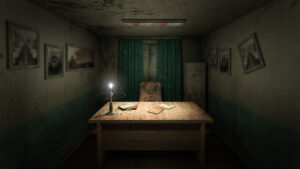
Escape Room Locks: Understanding Different Types and Mechanisms
Escape rooms have quickly captured the imagination of everyone looking for a unique adventure. They provide players with the chance to solve puzzles, untangle riddles,
Escape room games are practically real-life applications of different video game elements. A mix of finding missing clues, solving puzzles, and interactive storytelling makes it an innovative and immersive experience. While every escape room game is unique in theme and implementation, its participants can develop practical life skills with all of them.
Like any puzzle, escape games force their players to look at things differently through a unique perspective. This helps them solve different obstacles, from word puzzlers to numerical patterns. Additionally, the cooperative element of working with a team makes it both an individual and group learning experience.
In this article, we’ll share five practical life skills you can develop through escape room games.
During an escape room game, you’ll encounter different clues and environmental details to help you solve puzzles. Some will require general knowledge of certain patterns, while others are tied to the narrative’s storyline. Remembering details can be even more difficult as you juggle different details by discussing them among your team members. For this reason, you’ll be trained to be more capable of remembering facts and connecting them together.
Some escape room puzzles will involve patterns that depend on colors, shapes, or even numerical codes. This is why players will be trained to look at things through a different perspective. Sometimes, you’ll need to pace yourself and determine if some puzzles aren’t even puzzles at all. These red herrings act as time-wasters and distract you from finding the right solution to locks and codes.
Although escape games are primarily cognitive in nature, some will require you to develop stronger dexterity. While you won’t be expected to lift heavy objects, you may need to perform different tasks that require throwing objects or timing buttons. These puzzles will test your hand-eye coordination, which will be helpful in real life, like recovering from slips and falls to playing in competitive sports.
Escape games are inherently more fun when you do it with friends. Although it can lead to some chaotic moments, it’s advantageous to have different people with different skills to bring to the table. Some people can be better at memory recall, while others could be excellent at manipulating numbers. It’s an escape game’s objective to bring all these unique mental strengths together through effective leadership and communication.
Participating in an escape room game will force you to juggle between different stress factors. You won’t have gadgets or devices with you as you enter the room. Instead, you’re left with a timer that tells you how much time you have to complete the game. This puts the players under a sense of urgency while shuffling to gather clues, keys, and puzzles in the right order and arrangement.
Since you have to juggle different tasks, you must effectively divide your team to look at various areas in the room. You can also delegate some to accomplish one task while others look for the next puzzle to solve. This lets you practice effective time management to beat the clock and escape before the allotted time for the session ends.
What you gain while playing escape room games doesn’t just stay within your session’s time limit. The practical skills you develop will have an overall impact on your brain’s capacity to see and solve problems in real life. This makes your gaming experience just as enriching as they are a fun time.
As the largest escape room and virtual reality facility for immersive escape games, Premier Escape Adventures delivers a one of a kind experience. We can help you develop your practical life skills while having fun with your friends, co-workers, and more! If you’re looking for an exciting escape room in Bradenton, book a session with us today!

Escape rooms have quickly captured the imagination of everyone looking for a unique adventure. They provide players with the chance to solve puzzles, untangle riddles,

Escape rooms have become a popular form of interactive entertainment, offering thrilling experiences that test your wits and problem-solving skills. Imagine stepping into a room

Escape rooms have captured the imagination of adventure seekers, offering puzzles, clues, and themes that transport players to different worlds. They aren’t just about solving